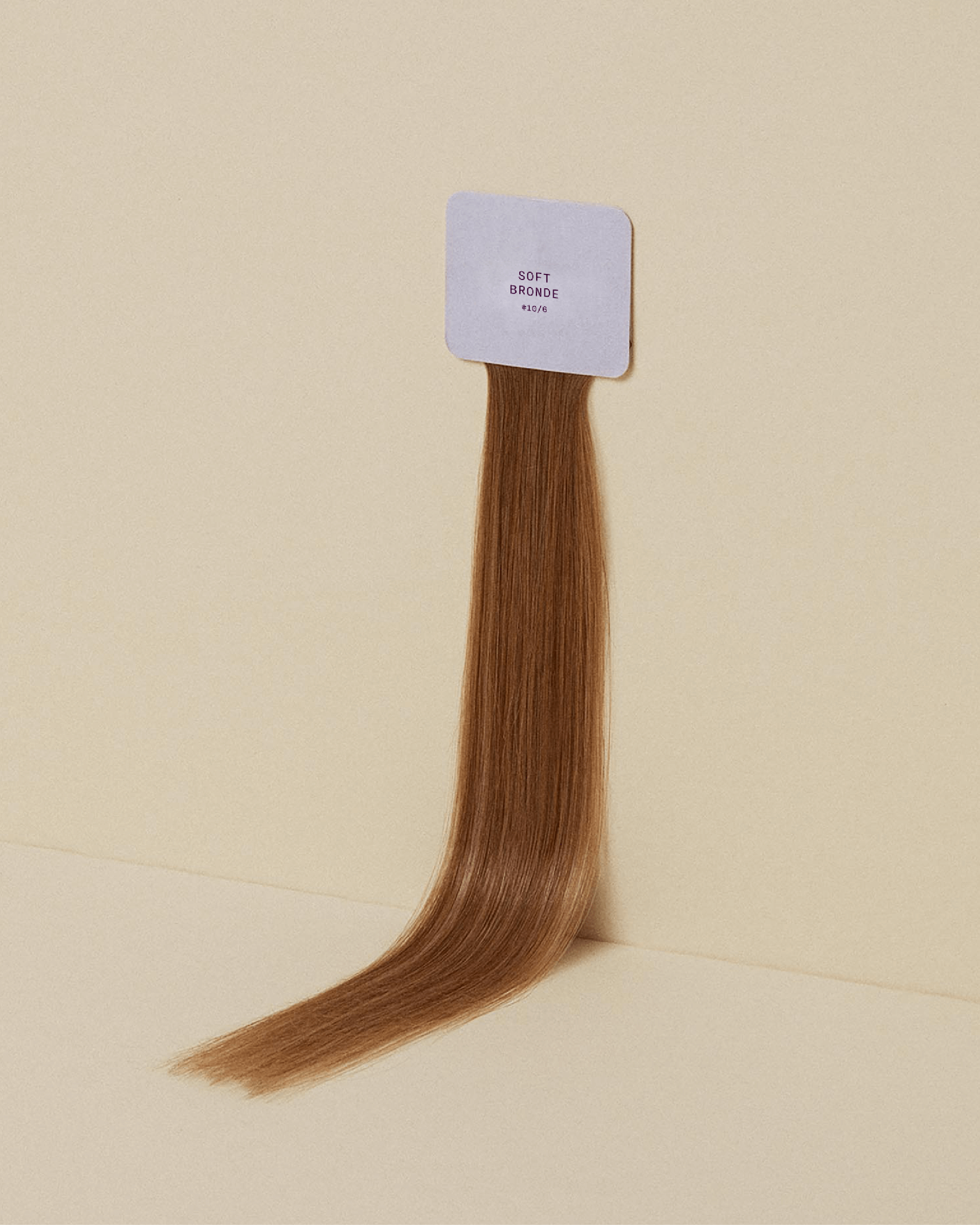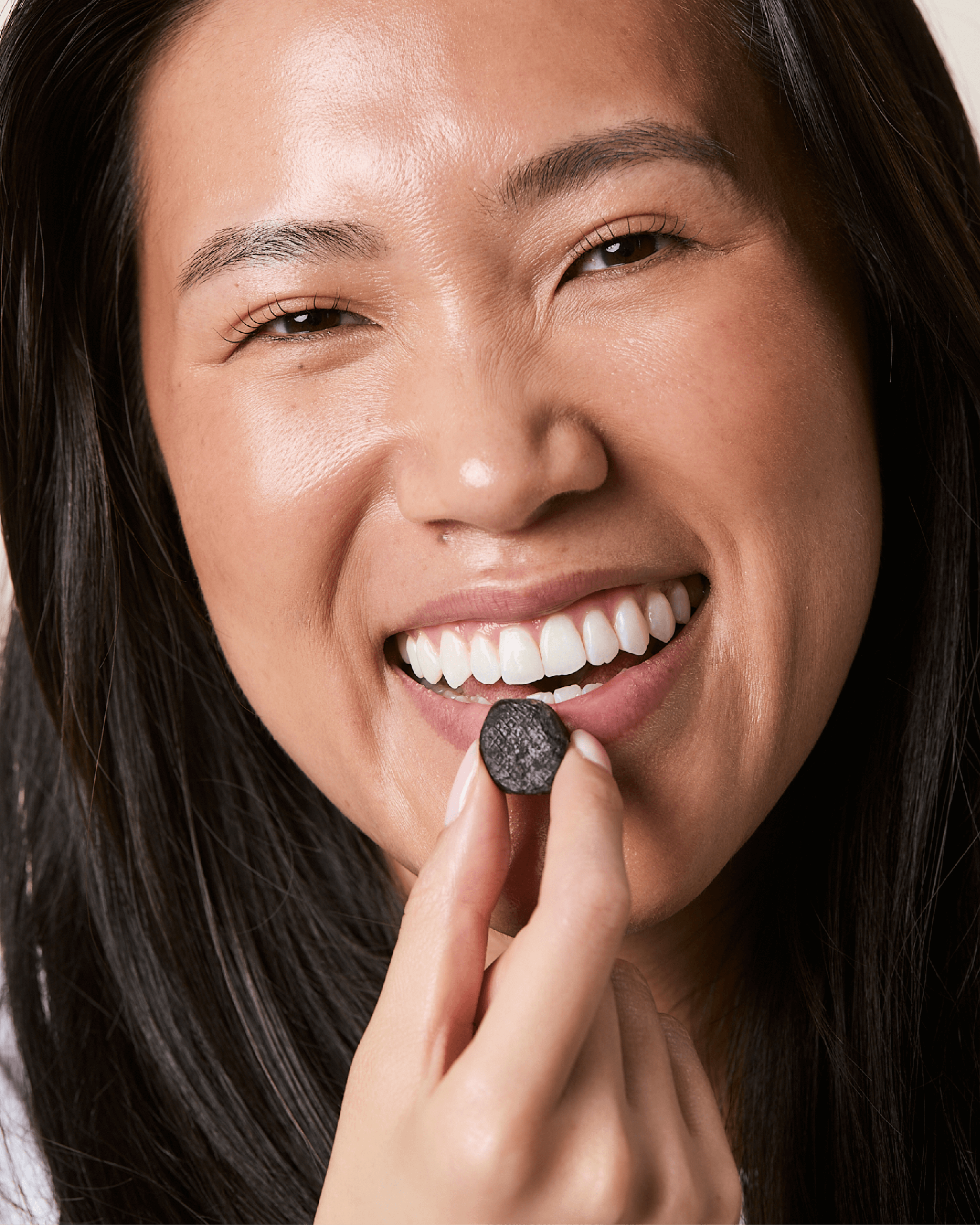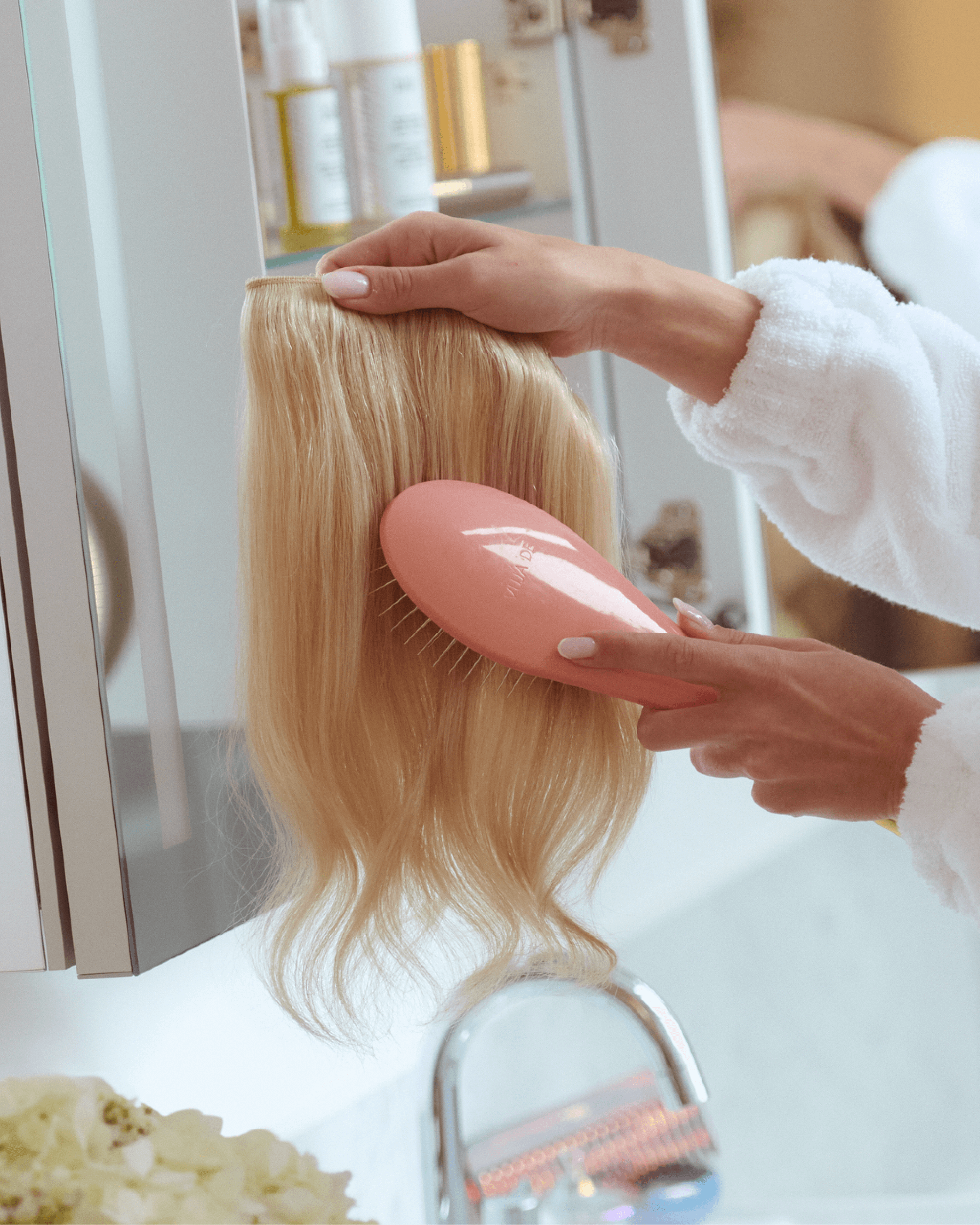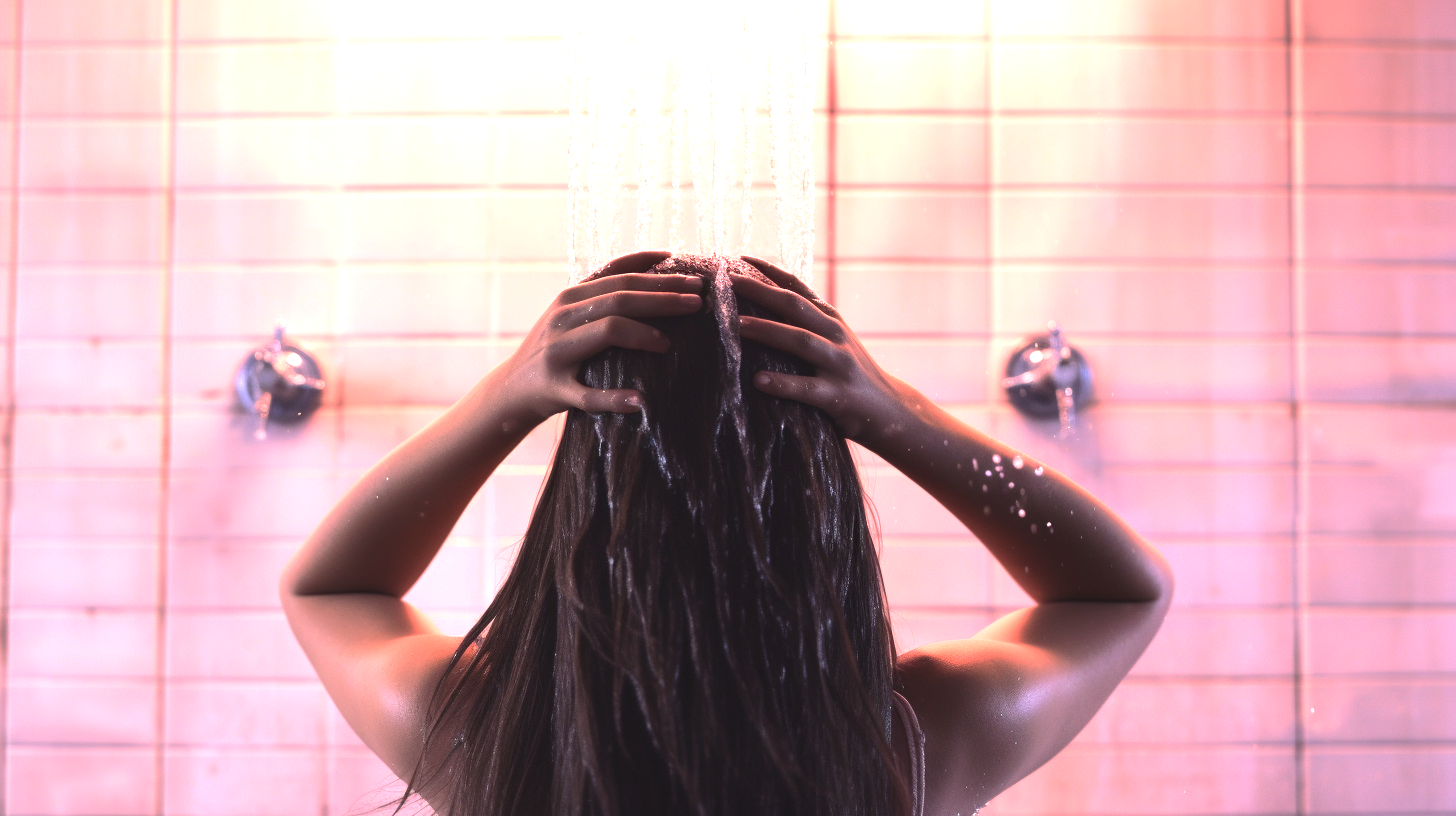Frustrated by excessive hair loss? You're not alone. I too struggled with excessive hair fall and tried numerous remedies without success.
But what if I told you that your everyday shower may be causing your hair loss?
Yes, hard water causes hair loss. But how?
In this article we'll discuss the effects of hard water on your hair, as suggested by published scientific research. And we'll offer some potential remedies to help you deal with hair loss caused by hard water, for good.
Can Hard Water Cause Hair Loss
Is hard water bad for your hair? Let us embark on our exploration of this significant inquiry, but before we proceed, let us delve into some intriguing facts.
The enigma surrounding the relationship between hard water and hair loss warrants clarification, as contradictory findings exist.
A study conducted in 2013, involving 15 female volunteers, revealed no notable disparity in hair strength and flexibility between those who washed their hair with hard water and those who used distilled water.
Contrastingly, a study carried out in 2018, encompassing 70 male participants, discovered that individuals who washed their hair with hard water exhibited an elevated likelihood of hair breakage and loss.
These conflicting outcomes may arise from disparities in the study groups, methodologies employed, or the specific composition of the hard water under examination. It is also plausible that the impact of hard water on hair varies between men and women.
Nevertheless, we must bear in mind that hard water contains calcium carbonate and magnesium sulfate, which can accumulate as deposits on the scalp. When these deposits amass on both the hair and scalp, they can impede the efficacy of any hair treatments employed.
Additionally, hard water fosters the proliferation of bacteria and fungi on the scalp and hair, culminating in dryness, frizz, and breakage.
READ: How to Stop Scalp Itching: 5 Actually Easy Ways
Does Hard Water Cause Hair Loss
Does hard water affect your hair? Absolutely.
Hard water, characterized by high mineral content, is often linked to hair loss due to its ability to leave mineral deposits on the scalp, which can clog hair follicles and impede healthy hair growth.
While hard water for the hair itself does not directly cause hair loss, it can contribute to the problem indirectly. By understanding the effects of hard water on hair, we can uncover how it affects its overall health and potential for loss.
ALSO READ: 8 Common Causes Of Hair Loss In Women
Hard Water's Role in Hair Dryness and Vulnerability
Hard water contains minerals that can deposit on the hair shaft, creating a coating that inhibits moisture absorption.
Consequently, the presence of hard water can make hair dry and more susceptible to breakage.
Dry hair lacks the necessary hydration, which weakens its structure and increases the chances of hair loss.
Hard Water's Impact on Hair Strength and Breakage
The minerals present in hard water not only affect hair moisture but also weaken the hair shaft itself. These minerals gradually accumulate on the hair, making it brittle and prone to breakage.
Hard water can make hair dull and brittle. Brittle hair is fragile and more likely to snap or split, leading to hair loss over time.
Is Hair Loss Due to Hard Water Permanent?
Hard water, characterized by high mineral content, has long been associated with various household challenges. One such challenge is its potential negative impact on hair health, which can lead to hair loss.
However, it is essential to understand that hair loss due to hard water is not permanent.
By implementing preventive measures to shield your hair from the mineral deposits found in hard water, you can effectively halt further hair loss and stimulate healthy hair growth.
CHECK THIS OUT: Why Georgia's Hair Started Falling Out
Effects of Hard Water on Natural Hair
Natural hair requires special care and attention to maintain its health and vitality. Unfortunately, hard water can pose significant challenges to the well-being of your natural hair.
Hard water can leave mineral deposits on your hair, making it dull and difficult to manage. However, by following a few simple tips, you can effectively protect your natural hair from the damaging effects of hard water and maintain its luscious texture and strength.
POPULAR: 3 Key Steps To Naturally Thicker, Fuller Hair
Use a Clarifying Shampoo
- Using specific hard water hair care products on a daily basis can help protect your hair from damage.
- Incorporate a clarifying shampoo into your hair care routine to remove any mineral buildup caused by hard water.
- Look for a clarifying shampoo specifically formulated to eliminate residue and restore the natural balance of your hair.
- Use the clarifying shampoo once a week to thoroughly cleanse your scalp and strands, ensuring that your hair remains free from mineral deposits.
Deep Condition Regularly
- Consider selecting a deep conditioner that contains nourishing ingredients like shea butter, coconut oil, or argan oil to help improve the health and appearance of your hair.
- Apply the deep conditioner generously to your hair, focusing on the ends, and leave it on for the recommended time to allow for deep penetration and hydration.
- Regular deep conditioning treatments will restore moisture, enhance elasticity, and protect your hair from the drying effects of hard water.
Minimize Heat Styling
- Heat styling tools, such as flat irons and curling wands, can further exacerbate the damage caused by hard water.
- Whenever possible, embrace natural hairstyles that require minimal or no heat styling.
- Using a heat protectant spray is recommended to reduce the damage caused by heat styling tools. The spray creates a barrier between the heat and your hair, minimizing the risk of damage.
- Additionally, opt for lower heat settings and limit the frequency of heat styling to protect your natural hair from excessive dryness and breakage.
Schedule Regular Trims
- Split ends can make your natural hair appear dull and hinder its growth.
- Schedule regular trims every 8-12 weeks to remove split ends and maintain the overall health of your hair.
- By eliminating split ends, you can prevent further damage and promote healthier, stronger hair growth.
Stay Hydrated
- Adequate daily water intake is essential for both general health and optimal hair hydration and health.
- Hydration from within helps to combat the drying effects of hard water on your natural hair.
- To keep your hair hydrated, drink 8 glasses of water daily.
RELATED: How to Protect Hair From Hard Water
Hard Water and Oily Hair
The high mineral content in hard water can contribute to the buildup of excess oil, resulting in oily hair.
TRENDING: How to Fix Oily Hair and Other Greasy Hair Hacks
The Visible Effects of Hard Water
When your hair meets hard water, the minerals in it can mix with the oils your scalp makes. This interaction alters the appearance of your hair, making the oils more visible.
So, you might see that your hair looks shinier or greasier than usual. This heightened visibility of natural oils can be a persistent concern for individuals with oily hair.
The Residue Dilemma
Beyond the immediate effect on oil visibility, hard water can leave a residue on your hair strands. This residue accumulates over time and can contribute to the weighed-down and greasy sensation many individuals experience.
The buildup of minerals and impurities can hinder your hair's natural bounce and vibrancy. It is essential to address this residue to restore your hair's vitality.
Increased Porosity and Oil Absorption
Hard water's mineral content can also affect the porosity of your hair. Porosity refers to how easily your hair absorbs and retains moisture.
When exposed to hard water regularly, your hair becomes more porous, meaning it can absorb and retain more oil from your scalp. This increased oil absorption contributes to the greasy feel and appearance of your hair.
Managing the porosity of your hair becomes essential in controlling excess oil.
To combat the impact of hard water on your hair, several strategies can help mitigate the negative effects. Implementing a targeted hair care routine and investing in appropriate products can significantly improve the condition of your hair.
Like What You Read? Here's More!
- 10 Benefits Of A Leave-In Conditioner
- 10 Ways To Detox Your Hair To Make Your Hair Grow
- 10 Scalp Health and Hair Growth Tips You Can Do at Home
Health/Medical Waiver:
The information provided on this website is not intended as medical or health advice. We do not assume any liability for errors, omissions, or inaccuracies in the content. It is your responsibility to consult with a medical or health practitioner for personalized advice. Reading and using the information on this blog does not create a doctor-patient or health practitioner-client relationship. Reliance on the information is at your own risk, and we encourage independent verification. External links are provided for additional information, but we do not endorse or take responsibility for their content. By using this blog, you agree to indemnify us from any claims or liabilities arising from your use of the information provided.
Read more
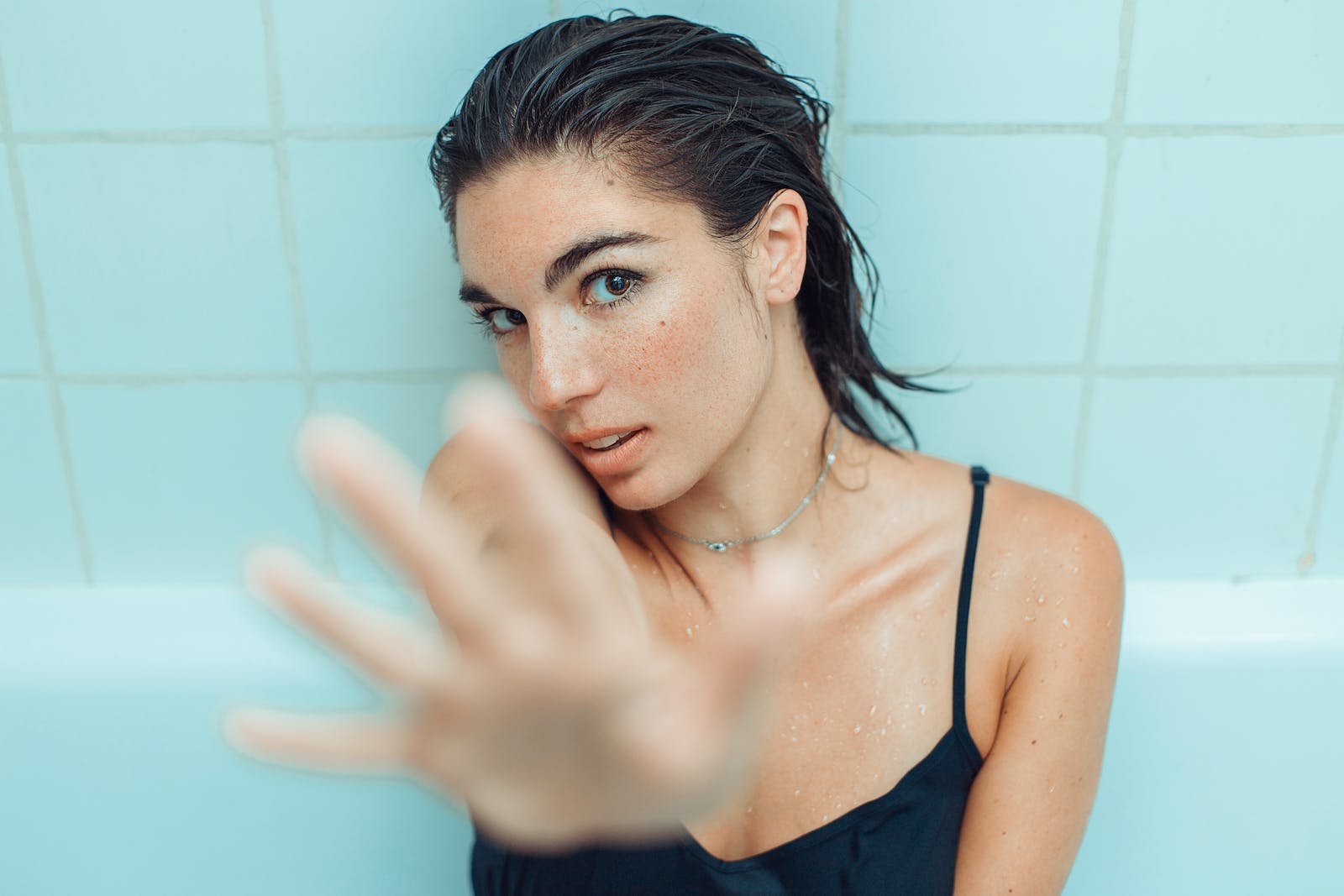
Learn how to protect your skin from hard water and achieve a glowing complexion. Expert advice and practical solutions await!

Discover the impact of hard water on your skin and learn how to counteract its detrimental effects.
